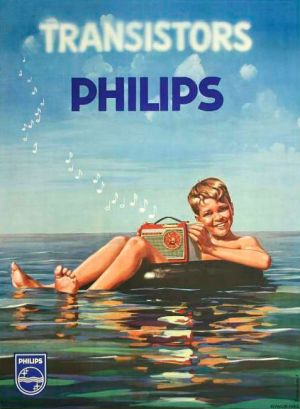Child: Difference between revisions
The Admins (talk | contribs) No edit summary |
The Admins (talk | contribs) |
||
| (18 intermediate revisions by the same user not shown) | |||
| Line 1: | Line 1: | ||
A '''child''' | __NOTOC__ | ||
[[File:Boysinadertising1959.jpg|thumb|A child ([[boy]]), depicted in advertising (1959)]]A '''child''' is a person who has not started puberty (a prepubescent). Within the sphere of [[chronophilia]] research and self-reference among people expressing various chronophilias, this simple definition is used. | |||
''' | Alternative definitions are the familial status (I am the ''child'' of my parent, despite being 35 years old), or someone who is either below the [[Age of Majority]] or [[Age of Consent]] (a minor). The [[United Nations]] use the latter definition - someone under the age of 18. | ||
== | ==Instability as a social concept== | ||
Central to the issue of intergenerational sexuality is the concept of childhood | '''Childhood''' and by extension, the status of human beings as children is an unstable concept. It has been suggested by some historians such as [[Philippe Aries]]<ref>[http://en.wikipedia.org/wiki/Philippe_Aries Wikipedia - Aries]</ref> that the concept of childhood is itself a second-millennium invention. | ||
In sentencing two different men for [[child pornography]] offenses, Judge John A. Woodcock Jr. has stated that ''“This is not only a crime against individual children. This is a crime against childhood itself and the innocence of childhood”'',<ref>[https://www.justice.gov/usao-me/pr/bucksport-man-sentenced-possessing-child-pornography Bucksport Man Sentenced for Possessing Child Pornography] and [https://web.archive.org/web/20190119222518/https://thecounty.me/2019/01/16/news/caribou-man-sentenced-to-7-years-in-prison-for-downloading-sharing-child-pornography/ Caribou man sentenced to 7 years in prison for downloading, sharing child pornography]</ref> thus highlighting the importance of these statutes in maintaining the ''institution'' of childhood. | |||
Within academia, ''[[Critical Childhood Studies]]'' explores, among other topics, the history and construction of childhood, textual and visual representations of childhood, childhood as metaphor, and children, themselves, as agents of cultural production.<ref>[https://ccsproject.org/critical-childhood-studies/ Critical Childhood Studies]</ref> | |||
==Childhood innocence and vulnerability== | |||
Central to the issue of intergenerational sexuality is the concept of [[Childhood Innocence|childhood innocence]] and its modern objectivist/utilitarian counterpart, [[vulnerability]]. | |||
==See also== | ==See also== | ||
| Line 12: | Line 21: | ||
*[[Girl]] | *[[Girl]] | ||
*[[Adult]] | *[[Adult]] | ||
*[[ | *[[Minor-adult sex]] | ||
*[[Child | *[[Child Sexual Abuse]] | ||
*[[Child | *[[Child Pornography]] | ||
*[[Feminism]] | |||
*[[Safeguarding]] | |||
*[[Jacob Breslow]] | |||
==References== | |||
[[Category:Official Encyclopedia]][[Category:Facts of life]][[Category:Youth]][[Category:Terminology]][[Category:Terminology: Academic | [[Category:Official Encyclopedia]][[Category:Facts of life]][[Category:Youth]][[Category:Terminology]][[Category:Terminology: Academic]] | ||
[[Category:Terminology: Popular]][[Category:Terminology: Charity, NGO & "Professional"]] | [[Category:Terminology: Popular]][[Category:Terminology: Charity, NGO & "Professional"]][[Category:Terminology: MAP]] | ||
Latest revision as of 21:50, 5 July 2023

A child is a person who has not started puberty (a prepubescent). Within the sphere of chronophilia research and self-reference among people expressing various chronophilias, this simple definition is used.
Alternative definitions are the familial status (I am the child of my parent, despite being 35 years old), or someone who is either below the Age of Majority or Age of Consent (a minor). The United Nations use the latter definition - someone under the age of 18.
Instability as a social concept
Childhood and by extension, the status of human beings as children is an unstable concept. It has been suggested by some historians such as Philippe Aries[1] that the concept of childhood is itself a second-millennium invention.
In sentencing two different men for child pornography offenses, Judge John A. Woodcock Jr. has stated that “This is not only a crime against individual children. This is a crime against childhood itself and the innocence of childhood”,[2] thus highlighting the importance of these statutes in maintaining the institution of childhood.
Within academia, Critical Childhood Studies explores, among other topics, the history and construction of childhood, textual and visual representations of childhood, childhood as metaphor, and children, themselves, as agents of cultural production.[3]
Childhood innocence and vulnerability
Central to the issue of intergenerational sexuality is the concept of childhood innocence and its modern objectivist/utilitarian counterpart, vulnerability.
See also
- Boy
- Girl
- Adult
- Minor-adult sex
- Child Sexual Abuse
- Child Pornography
- Feminism
- Safeguarding
- Jacob Breslow